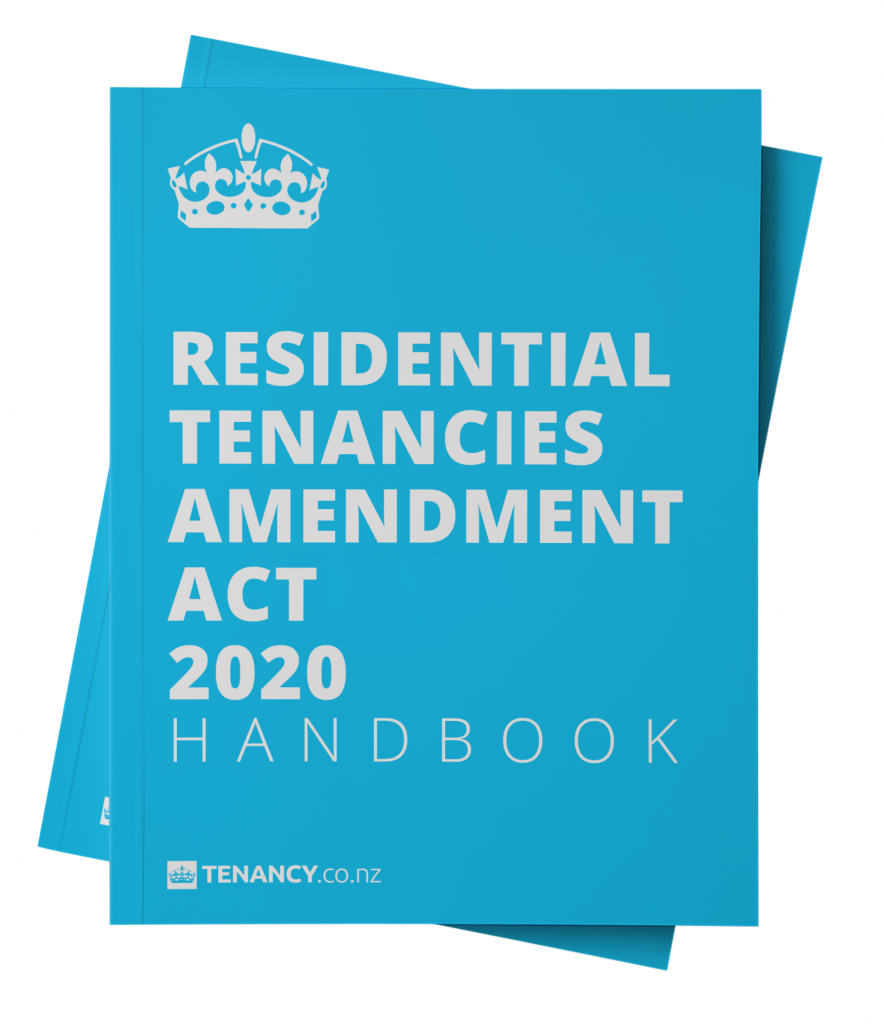The Residential Tenancies Amendments Act 2020 is set to have a significant impact on a landlord’s responsibilities and on the way they must operate their tenancies. The changes will implement almost 100 new amendments to the existing Residential Tenancies Act – and it’s crucial that landlords are across them all.
These new rules will future proof our changing rental market as we continue to see increasing demand for rental properties and longer-term tenancies.
The good news is that the changes are entirely manageable, and will ultimately create the framework for a more secure renting environment for landlords and tenants alike.

Security of rental tenure – The provision allowing landlords to terminate a tenancy without cause, by providing 90 days’ notice, will no longer apply. New termination grounds will be available to landlords under a periodic tenancy and the required notice time frames have also changed.
Key examples of this are, but are not limited to:
• 14 days’ notice
The tenant physically assaults the landlord or family member.
• 63 days’ notice
The landlord or their family member requires the property to live in.
• 90 days’ notice
The landlord intends to put the property on the market for sale as vacant.
The property has been sold with a requirement of vacant possession.
The landlord intends to carry out extensive renovations at the property.
The property is to be demolished.
• Notice period determined by the Tenancy Tribunal
The landlord issues three separate notices for antisocial acts in a 90-day period.
The landlord issues three separate notices for late rent (5 working days +) in a 90-day period.
The landlord will suffer greater hardship than the tenant, if the tenancy continues.

Fixed-term tenancies – All fixed-term tenancies will convert to periodic tenancies at the end of their term unless both parties agree otherwise, or the tenant gives 28-days’ notice (for any reason).
Landlords may still give notice for a fixed-term tenancy to expire, but only if this is in accordance with the termination grounds listed in the Residential Tenancies Act (RTA), or by order of the Tenancy Tribunal.
Making minor changes – Tenants can request to make a change to a rental property and this request cannot be declined by the landlord if the change is minor. Landlords must respond to such requests for minor changes within 21-days.
Tenants are responsible for any costs associated with both the installation and reversal of any minor changes they request, and landlords can place reasonable conditions as to how changes are carried out.
Rental bidding – Landlords cannot advertise a property for rent without the rental price being clearly listed, and they cannot encourage or solicit higher rental bids or hold a rental ‘auction’. However, prospective tenants can still offer to pay more for a property if they choose to do so.

Assignment of a tenancy – Tenants can request to assign their tenancy to another party, and landlords must not unreasonably decline this request. Landlords must respond to any request for assignment within a reasonable timeframe.
Landlords retain their right to conduct necessary vetting and checks on proposed tenants and can decline this request if evidence can be shown that the tenant is not suitable.
Fibre broadband – Tenants can request to install fibre broadband at a rental property and landlords must agree, if it can be installed at no cost to the landlord. Tenants are responsible for any ongoing costs related to the fibre service.
Landlords can decline a fibre broadband request, however, only if specific exemptions apply e.g. the installation may breach Body Corporate rules, or risks compromising the weathertightness or character of the property.
Privacy and access to justice – Tenants or landlords can apply for a suppression order to remove names or any identifying details from being published in a Tenancy Tribunal decision, if their case is wholly or substantially successful. The Tribunal can also decide to suppress details if it is in the interests of the parties or the public interest to do so.

Landlord records – Landlords must provide a tenancy agreement in writing, and failure to do so can be classed as an unlawful act leading to the possibility of exemplary damages being awarded to the tenant.
Landlords have an obligation to provide records relating to healthy homes standards, upon request, and must now retain various records, and information relating to the property and the tenancy, for up to 12-months after the tenancy expires.
Enforcement of the Residential Tenancies Act – The Regulator (the Ministry of Business, Innovation, and Employment) will have new measures available to them for taking their own direct action against landlords who are not meeting their obligations.
This action can include seeking voluntary agreements with landlords to comply with the RTA, or improvement notices to correct a breach of the Act. Failure to comply with either can result in financial penalties for landlords.
Changes for Tenancy Tribunal jurisdiction – The jurisdiction and administrative powers of the Tenancy Tribunal jurisdiction are broadened under the new changes.
It can now hear cases and make awards of up to $100,000, and new layers of penalties and fines are in place for landlords, or their associated parties, if they own six or more tenancies.
Transitional and emergency housing – Accommodation provided for these purposes, which is funded by the government or part of a special needs grants programme, is exempt from the Residential Tenancies Act.





